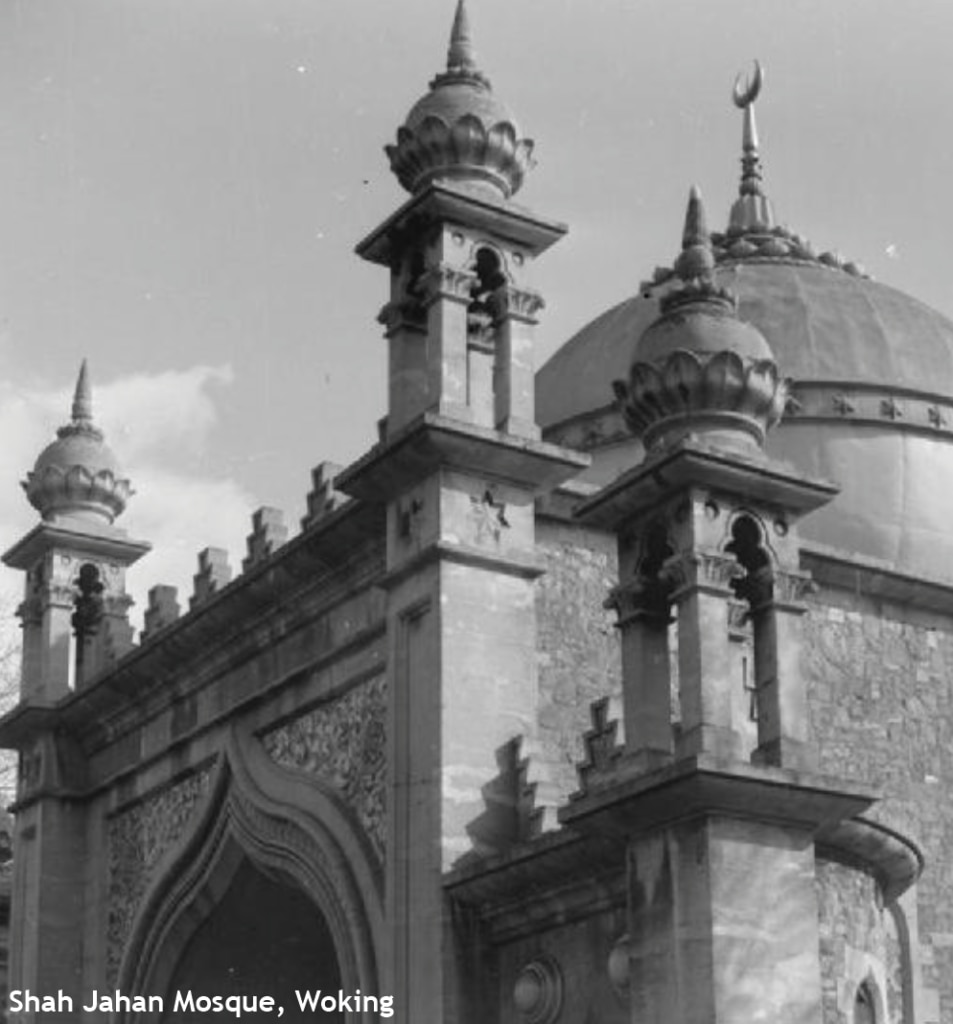Al Fazl, 27 May 1919
Khawaja Kamaluddin Sahib went to the UK in order to convey the message of Islam which he had acquired from the Promised Messiahas. At least that is what he revealed to Ahmadis, but God knows what he disclosed to the people over there and what they perceived from his discourse.
Nonetheless, Khawaja Sahib reached the UK and began his efforts. Ahmadis were committed and ready to do as Khawaja Sahib directed. However, once he got there, he perceived that Ahmadiyyat was a narrow passage and the Ahmadiyya Jamaat was an insignificant group. Therefore, he declared that the tabligh of Ahmadiyyat and mentioning the name of the Promised Messiahas in the UK was a hurdle in the promulgation of Islam and it acted as a deadly poison.

Hence, he carried on with the mission of converting Christians into Muslims, abandoning the way of God, about Whom he admitted that He had saved him from converting to Christianity and in fact rescued him from the pit of Christianity. Abiding by a wrong and erroneous way of preaching, he had not only imagined, but in fact believed that he would be able to attract countless people into the pale of Islam. However, regardless of his cunningness, the outcome of his efforts turned out to be futile as was destined. It became evident like daylight that it was the corruption of Khawaja Sahib’s heart and faith which led him to declare that mentioning the name of the Promised Messiahas in the UK acted as a deadly poison in the way of propagating Islam.
If it has really been the matter, then our mission which was solely based to present before the European nation that very Islam which was taught by the Promised Messiahas and to spread his name across the globe, would never have gained a strong foothold over there, resulting in the unsuccessful return of our missionaries. Moreover, the people of that region would not have considered them worthy of having any discussion or listening to their discourse, but instead they would have avoided them as one keeps away from a deadly poison.

On the contrary, nobody can claim that our missionaries were unsuccessful in the task of conveying that same message of Ahmadiyyat, the true Islam, which was declared a deadly poison by Khawaja Sahib. [Can anybody prove] that Khawaja Sahib turned out to be successful by avoiding this poison as a result of which he abandoned the message of Ahmadiyyat? We would like to present a detailed description of this matter:
There was a very short span of time between the second visit of Khawaja Sahib and Mufti Sahib’s first visit to London. The former was well aware of the UK’s conditions because he had previously resided there and believed that mentioning the name of Ahmadiyyat was extremely detrimental in that place and it acted as a hurdle in the tabligh of Islam. The second person under discussion is the one who was totally unaware of the conditions of that region and was instructed by his imam, whom he considered worthy to be obeyed, in the following manner:
“Convey the truth [Ahmadiyyat]. This is your mission. It is not your responsibility to make them accept or embrace it.”
These were the words of Hazrat Khalifatul Masih II addressed to Mufti Sahib while delivering a lecture in a general gathering. In other words, the only responsibility of Mufti Sahib was to present before the European nation that Ahmadiyyat, which, according to Khawaja Sahib, acted as a deadly poison for the promulgation of Islam.
When we compare the outcome of Khawaja Sahib’s efforts with our missionaries, our hearts are filled with praise and gratitude to Allah the Almighty that He, through His benevolence, granted success to our missionaries, which was never achieved by the other party, in spite of possessing every kind of apparent means of success. In the span of two years, the total number of people who have accepted Islam, according to Khawaja Sahib, amounts to just 20.
No matter what sort of people Khawaja Sahib claims to have accepted Islam; whether they seek to develop the true teachings of Islam in themselves or not, whether they consider the drinking of wine as lawful, whether they seek to distort the very beliefs of Islam rather than adopting them after entering the pale of Islam or whether their moral conditions appear to be in the weakest possible state after declaring themselves to be a Muslim; no matter what Islamic beliefs these Muslims possess, the number Khawaja Sahib claims to have accepted Islam in the period of two years does not exceed the figure of 20. Perhaps, Khawaja Sahib is only “compelling them to accept God” and does not obligate those who become Muslims to abide by the doctrines of Islam. Competing with him on the other side are Mufti Muhammad Sadiq Sahib and his associate Qazi Muhammad Abdullah Sahib who have never extended their hand before any non-Ahmadi and never desired to receive stipends from any government, but rather their expenses are managed from the pockets of a handful of poverty-stricken Ahmadis.
Considering these Ahmadis as insignificant, Khawaja Sahib trustingly looked towards other governments and non-Ahmadis and ended up rusting his own hands. Owing to the efforts of our missionaries, with the blessings and benevolence of Allah the Almighty, in the same two-year period, around 70 individuals embraced Islam and each one of them is an Ahmadi who considers the Promised Messiahas to be a true prophet of God.
Nobody could ever have imagined the magnificence of this success and it becomes all the more significant when we compare the approach of our missionaries with those of the Woking mission. As mentioned earlier, the difference between the two separate ways of conveying the message of Islam is poles apart. The Woking mission is limited to compel (the people) to accept God and does not make any effort to obligate its Muslim converts to abide by the doctrines of the Shariah (divine law). More shockingly, the whereabouts of several of these converts are not revealed.
On the other hand, it is mandatory upon our missionaries that immediately after they have persuaded someone to accept God, they must commit him to believe in prophethood and do not consider him a Muslim on a verbal admission unless he makes an effort to practically abide by the doctrines of Islam. Hence, these people who become considerably close to Islam are called musaddiq (one who attests to the truth).
The Woking mission, however, defines Islam as merely verbally accepting God and the Prophetsa. If someone verbally admits that God is one and Muhammadsa was a prophet, it is put to paper by the Woking mission and an announcement is made that a lady or a gentleman has converted to Islam. Even by adding such kind of Muslims, the number of their new Muslim converts in two years does not exceed the figure of 15 or 20. However, four times more persons have converted to Islam by the efforts of Mufti Sahib and Qazi Sahib and there is not a single individual among them who has been considered (a Muslim) on verbal admission. Each one of them has faith in God and firmly believes in the true prophethood of Muhammadsa, moreover they accept the prophethood and messengership of Hazrat Ahmadas, the prophet of the age.
It is a matter of great happiness that several persons whom Khawaja Sahib has left after converting them to his lot of Muslims drank of this “deadly poison” [Ahmadiyyat] which was avoided by Khawaja Sahib as he considered it harmful, and they attained that renewed life which was once attained by Khawaja Sahib.
Has it not been proved that the assumption of Khawaja Sahib about the message of Ahmadiyyat that it acts as a deadly poison in the UK turned out to be an erroneous and futile perception? If this notion had been true, it would have certainly resulted in the failure of our missionaries. In fact, it appears that Khawaja Sahib’s idea was right in a certain way because if he had mentioned the name of that Messiah who is being mentioned in the Heavens with love by God Almighty and about whom He desired that his acceptance should spread across the globe, then this mention would have acted as a deadly poison for his [Khawaja Sahib’s] earnings which he used to receive from the non-Ahmadis.
It seems that Khawaja Sahib is in a state of shock for the reason that his efforts were not productive enough, regardless of having a great deal of money. Above all, he is grief stricken at the sight of what he considered to be a deadly poison for the people of the UK acting as an antidote for him.
Those conveying the message of Ahmadiyyat are successfully performing their tasks. The sum of the Woking mission’s lectures is very low in comparison to the lectures of our missionaries. Perhaps, this type of circumstances had an impact on his health. He has returned to India because he is unable to perform any work. We are sympathetic towards him over his failing health. However, we cannot stop ourselves from asking, will he still not learn a lesson from the kind of circumstances that have affected his health? And will he still retain his views that the message of Ahmadiyyat acts as a deadly poison for Europe, even after observing his failure and the success of those conveying the message of Ahmadiyyat?
Mufti Muhammad Sadiq Sahib, during his stay in London, repeatedly invited Khawaja Sahib for a discussion regarding the issues of mutual dispute. Mufti Sahib went so far as to give him a challenge of mubahalla (prayer duel) but he did not dare to come before him. Now it is unclear as to which battlefield he suggests for himself or, acting upon his old approach, whether he prefers to take part in politics or not. However, if he stimulates the issues of mutual dispute, he would realise that the age has passed when people are deceived by him.
(Translated by Al Hakam)

